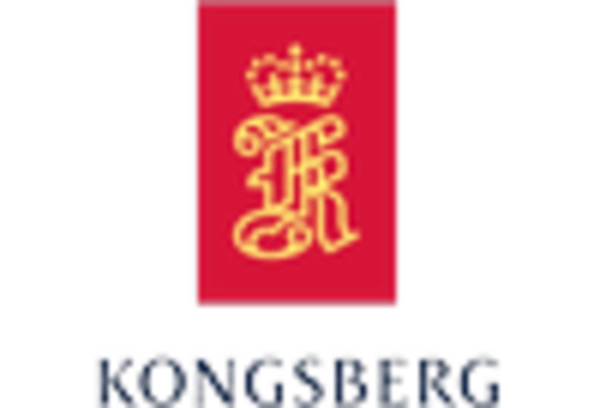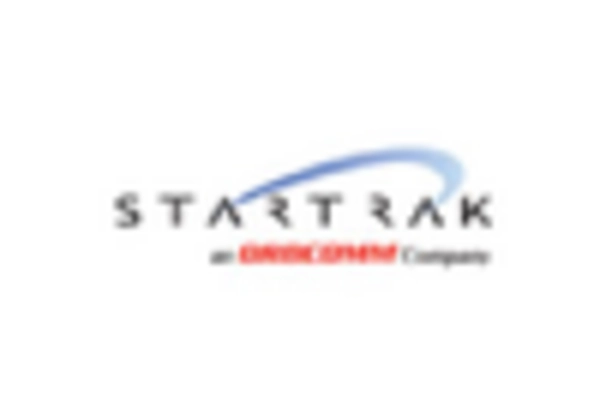Increasing Demand for Maritime Security
The Vessel Tracking System Market is experiencing a notable surge in demand for enhanced maritime security solutions. As global trade continues to expand, the need for secure and efficient vessel operations becomes paramount. According to recent data, the maritime security market is projected to reach USD 30 billion by 2026, indicating a robust growth trajectory. This demand is driven by the rising incidences of piracy, smuggling, and illegal fishing activities, which necessitate advanced tracking systems to ensure the safety of vessels and cargo. Consequently, stakeholders in the Vessel Tracking System Market are increasingly investing in sophisticated technologies that provide real-time monitoring and alerts, thereby enhancing overall maritime security.
Growth in E-commerce and Trade Activities
The Vessel Tracking System Market is significantly influenced by the growth in e-commerce and international trade activities. As businesses expand their reach across borders, the need for efficient logistics and supply chain management becomes critical. The World Trade Organization reported a 10% increase in global merchandise trade volume in 2025, which underscores the importance of reliable vessel tracking systems. These systems facilitate better route planning, reduce delays, and optimize fuel consumption, ultimately leading to cost savings for shipping companies. As a result, the Vessel Tracking System Market is poised for growth, driven by the increasing reliance on technology to streamline maritime operations.
Rising Investment in Smart Shipping Solutions
The Vessel Tracking System Market is benefiting from a rising investment in smart shipping solutions. As the maritime sector embraces digital transformation, stakeholders are increasingly allocating resources towards innovative technologies that enhance operational efficiency. Reports indicate that investments in smart shipping technologies are expected to exceed USD 10 billion by 2027. This trend is driven by the need for improved decision-making, predictive maintenance, and enhanced safety protocols. Vessel tracking systems equipped with artificial intelligence and machine learning capabilities are becoming essential tools for shipping companies aiming to optimize their operations. Consequently, this influx of investment is likely to stimulate growth within the Vessel Tracking System Market.
Technological Innovations in Tracking Solutions
Technological innovations play a pivotal role in the Vessel Tracking System Market, as advancements in satellite communication, GPS, and data analytics continue to evolve. The integration of these technologies enables more accurate and reliable tracking of vessels, which is essential for operational efficiency. For instance, the adoption of Automatic Identification Systems (AIS) has revolutionized maritime tracking by providing real-time data on vessel movements. Furthermore, the market is witnessing the emergence of blockchain technology, which enhances data security and transparency in vessel tracking. These innovations not only improve operational capabilities but also foster trust among stakeholders, thereby propelling the growth of the Vessel Tracking System Market.
Environmental Regulations and Sustainability Initiatives
The Vessel Tracking System Market is also shaped by stringent environmental regulations and sustainability initiatives. Governments and international organizations are increasingly implementing policies aimed at reducing the environmental impact of maritime activities. For instance, the International Maritime Organization has set ambitious targets to reduce greenhouse gas emissions from shipping by at least 50% by 2050. This regulatory landscape compels shipping companies to adopt advanced vessel tracking systems that monitor fuel consumption and emissions in real-time. By leveraging these technologies, companies can enhance compliance with environmental standards while promoting sustainable practices, thereby driving growth in the Vessel Tracking System Market.















